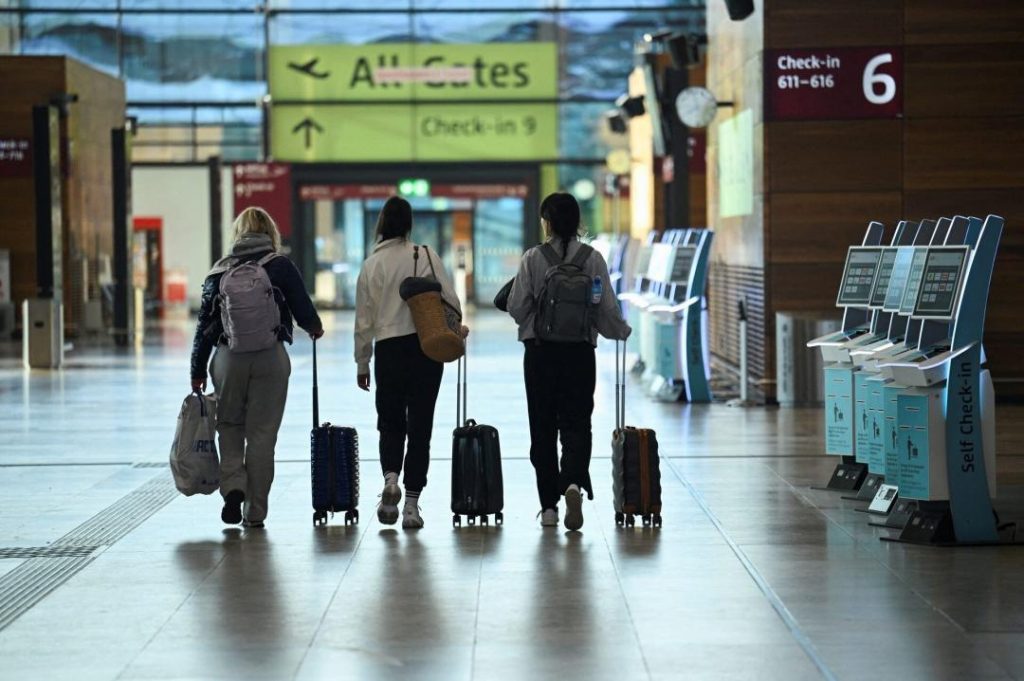
What Led to the Cancellation of Thousands of Flights in Germany?
Germany, a country known for its rich history, vibrant culture, and robust economy, was recently thrown into chaos when thousands of flights were cancelled across the country. The reason behind this disruption was a nationwide strike by airport workers, who are demanding better wages, working conditions, and more holidays. In this blog post, we will delve into the details of the strike, its demands, and the impact it had on the country’s air travel industry.
The Strike: A Nationwide Movement
On March 10, 2025, thousands of airport workers, including baggage handlers, security personnel, and ground staff, went on strike across Germany. The strike was called by Verdi, the country’s largest trade union, which represents over 2.2 million workers in various sectors, including the aviation industry. The union is demanding an 8% pay rise, or at least €350 ($380) more per month, for all workers. Additionally, they are seeking three extra days of holiday, plus one additional day for union members.
The strike was planned to take place at all major airports in Germany, including Frankfurt Airport, Berlin Brandenburg Airport, Munich Airport, and Hamburg Airport, among others. The union claimed that the strike was necessary to highlight the poor working conditions, low wages, and lack of job security faced by airport workers.
Impact on Air Travel
The strike had a significant impact on Germany’s air travel industry. Thousands of flights were cancelled, affecting hundreds of thousands of passengers. Many international flights were diverted to other airports, causing further delays and disruptions. The strike also disrupted cargo operations, with many cargo flights being delayed or cancelled.
The worst-affected airport was Frankfurt Airport, Germany’s busiest airport and a major hub for Lufthansa, the country’s national carrier. The airport operator, Fraport, announced that no passenger flights would depart from Frankfurt on Monday, March 10, 2025. The strike also led to the cancellation of many connecting flights, causing chaos for passengers traveling to and from Germany.
Airline Reactions
The airline industry was severely affected by the strike. Lufthansa, Ryanair, and Air Berlin, among others, were forced to cancel hundreds of flights. The airlines were left scrambling to rebook passengers and make alternative arrangements.
Lufthansa, in particular, was affected by the strike. The airline had to cancel over 500 flights, affecting around 100,000 passengers. The airline’s chief operating officer, Jens Bischof, said that the strike had caused “unprecedented chaos” and that the airline was doing everything it could to minimize the disruption.
Government Response
The German government called an emergency meeting to discuss the strike and its impact on the economy. The government appealed to both sides to resolve the dispute as soon as possible, citing the importance of the air travel industry to the country’s economy.
The government also offered to mediate the dispute and help find a solution. The Transport Ministry announced that it would work with the airlines, unions, and airport operators to find a way to resolve the strike and minimize its impact on the economy.
Conclusion
The strike by airport workers in Germany has caused widespread disruption to the country’s air travel industry. The strike has highlighted the poor working conditions, low wages, and lack of job security faced by airport workers. The union’s demands for better wages, working conditions, and more holidays are legitimate and reflect the growing discontent among workers in the industry.
The strike has also shown the importance of the air travel industry to the country’s economy. The government’s response to the strike has been cautious, with a focus on finding a solution to the dispute as soon as possible.
As the strike continues, it remains to be seen how it will affect the country’s air travel industry and economy. However, one thing is clear: the strike has brought attention to the plight of airport workers and the need for better working conditions and wages.
Source:






